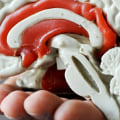They have become so popular in recent years because viewers view them as more identifiable than movie stars or other celebrity groups. In 1977, when Richard Dyer established celebrity studies as an academic field, he took the study system as paradigmatic of the many other forms of celebrity that preceded, followed and coexisted with him. Long before charity telethons and stadium concerts, such as Live Aid, celebrities organized charity events for victims of cattle, earthquakes and yellow fever. Three decades later, extensive rail networks allowed celebrities to easily visit both a country's major cities and its darkest nooks and crannies.
Lowenthal misunderstood his story. Celebrity culture had always included heroes of production and idols of consumption, but its audience was right. In turn, celebrities themselves realized the power of the press and even argued with publishers about their coverage. With each additional platform that a celebrity uses to promote themselves, a broader vision is created, improving the perception of culture.
Celebrities themselves don't form a cohesive, identifiable group that they identify with, but rather they are found in a spectrum of activities and communities that include acting, politics, fashion, sports and music. Through gossip, people can affirm their values and ideas by learning about the struggle of celebrities through tabloids and other media outlets. Although Hollywood didn't invent stardom, it did briefly change celebrity culture in a major way. While leading figures such as Raymond Williams and Stuart Hall defended the utopian and redemptive potential of popular culture, few have applied those more optimistic frameworks to celebrity culture.
The publisher published his letter to demonstrate his impartiality and avoid a defamation lawsuit, but he also published it because the actors were leading figures on the London theater scene and celebrities sold. Steamboats and newspapers helped celebrities expand their fame; in turn, celebrities helped attract the public to these new forms of transportation and communication. Most of the time, advertising is only aimed at celebrities who go against the social norm and do something different. Nowadays, the fact that no media or industry controls the stars or stardom has made more visible the force with which the public and celebrities have always influenced the course of celebrity culture and how their movements have been crucial to keeping it alive.
As leisure time increased, more people had more time to visit theaters, operas and conference rooms, where they saw celebrities in person.



